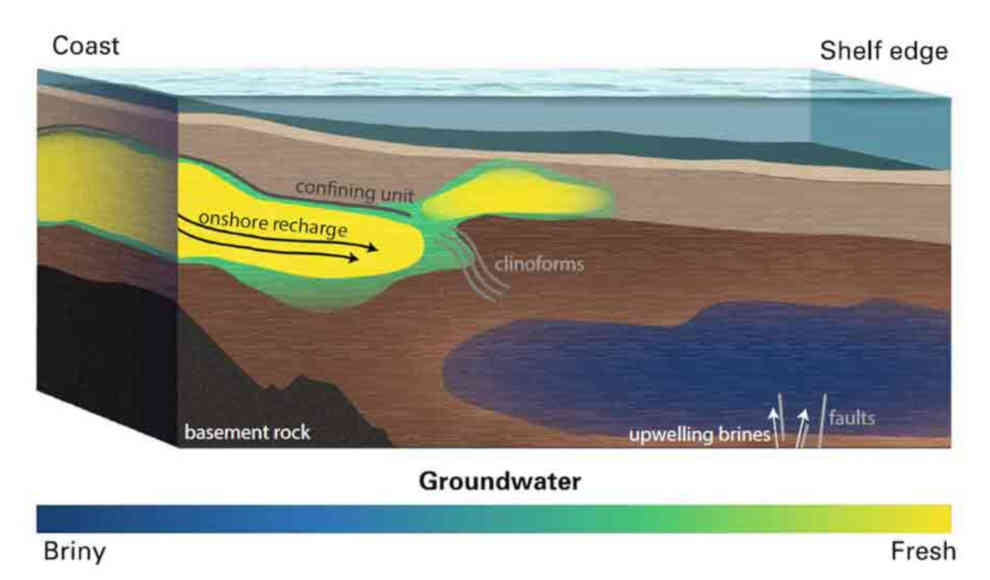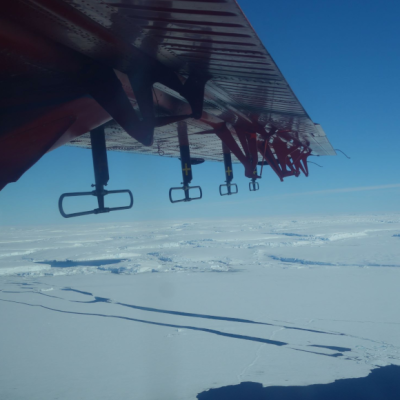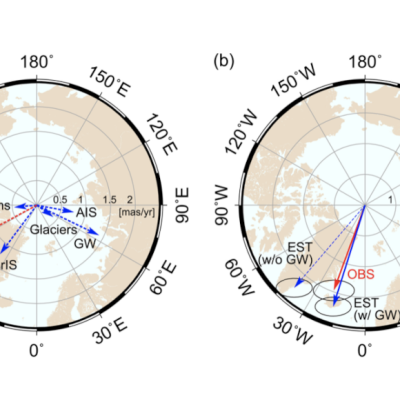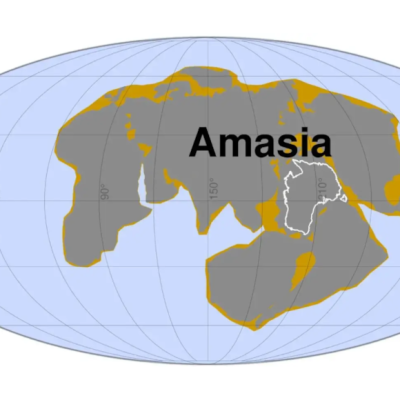Geologists from the Earth Institute at Columbia University have discovered one of the largest freshwater reservoirs on Earth off the coast of the United States. The aquifer is at least 350 kilometers wide and extends up to 90 kilometers beneath the Atlantic Ocean. The reservoir contains more than 2,800 cubic kilometers of freshwater, which is more than the volume of Lake Victoria, the third-largest lake on the planet that provides drinking water to about 30 million people. The discovery could mean that the groundwater reservoir is the largest freshwater source on the planet.
The scientists used electromagnetic measurements to analyze the shelf area from Massachusetts to New Jersey to determine the amount of drinkable water beneath the Atlantic Ocean. The measurements allowed them to determine the electrical conductivity of the sediments off the coast, which is determined by the salt content of the water trapped in the pores. Freshwater has a lower conductivity than saltwater, making it easy to identify in the data. The researchers have only confirmed that the aquifer extends from New Jersey to Martha’s Vineyard, but they believe that the freshwater accumulation extends far beyond the study area.
The scientists believe that the aquifer could contain even more groundwater than the largest on-land reservoir. The salinity of the trapped water is only one part per thousand near the coast, which is almost pure freshwater. Further from the coast, the salinity increases to a maximum of 15 parts per thousand, which is still lower than the salinity of seawater, which is 35 parts per thousand. The researchers believe that the aquifer originated about 20,000 years ago during an ice age when the Laurentide ice sheet covered large parts of the current continent, including areas of the current Atlantic Ocean. The melting of the glaciers could have led to the trapping of meltwater in depressions that were subsequently flooded due to rising sea levels.
The discovery of the aquifer could be a valuable resource, especially in dry regions where many known groundwater reservoirs are already overused or contaminated by pesticides, fertilizers, and other chemicals. The scientists plan to investigate other regions to determine if large aquifers are present there as well.










